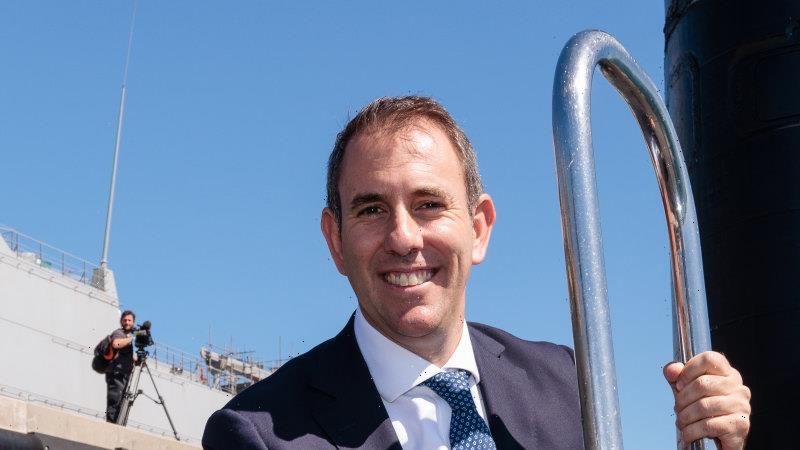The Albanese government is quickly discovering that politics is all about trade-offs.
By sticking with a politically expedient decision taken five years ago to prop up the budget of mining-rich Western Australia with billions of dollars of extra GST, federal Labor is charging headlong into a brawl with Victoria.
In 12 months it will be crunch time.
Jim Chalmers in Western Australia on Tuesday. He said he was “proud” of Scott Morrison’s GST deal.Credit:AAP
If the special GST deal for WA – put in place by Scott Morrison as treasurer in 2018 but an arrangement Jim Chalmers is now “proud” of – weren’t so convoluted, it would have probably provoked more public outrage. It is certainly costing a bomb.
A brief recap. WA has historically received more money back from the grants commission than it has put in, under the complex formula used to help smooth out living standards across the federation.
That began to change in the years leading up to the global financial crisis as the price of minerals, particularly iron ore, soared. Gradually, WA’s share of the GST pool was pared back as it began earning billions from Australia’s long mining boom. By 2015-16, the state was getting an all-time low of just 30¢ back for every $1 of GST it paid.
The former Barnett government complained bitterly, arguing WA was being financially punished for its mineral wealth, and for being the engine of the national economy.
Soaring iron ore prices resulted in WA’s share of the GST being cut to 30 cents for every $1 it paid.Credit:Tamara Voninski
Fearing a backlash, the Turnbull government, with Morrison as treasurer, promised WA would get no less than 70¢ back for every $1 of GST it contributed, to be raised to 75¢ by 2024-25. To make sure other jurisdictions were not out of pocket, the government promised “no worse off” payments funded out of the budget – but only until mid-2027.
At the time, the iron ore price was expected to fall, so the thinking was the special arrangement would be transitory, costing the budget about $2.3 billion. In fact, iron ore prices surged.
As the grants commissions revealed this week, WA will be about $5.6 billion better off next financial year than it would have been without the deal. Had the old arrangements been left in place, the state would be getting just 10¢ back for every $1 of GST.
As a consequence, compensation arrangements for the other states are now costing a fortune. Next year alone, Victoria, will get about $1.4 billion to ensure it is no worse off.
According to the commission’s figures, the whole arrangement is now expected to cost $25 billion since its inception. That’s more than 10 times the original prediction – an extraordinary cost blowout by any measure, to be funded by more federal debt.
But the cost to federal taxpayers is not Victoria’s primary concern. As Premier Daniel Andrews put it this week: “You want to do a sweetheart deal for WA, that’s fine, if that’s your choice.”
What is making Victoria tetchy is that the Albanese government is refusing to commit to continue with the “no worse off” compensation payments beyond mid-2027, leaving Victoria facing a budget hole of at least $1.4 billion a year.
Unless the federal government capitulates, Victoria will for the first time need to factor in the financial hit into the state budget’s four-year predictions from next year.
As Victorian Treasurer Tim Pallas pointed out, the $1.4 billion a year Victoria stands to lose is enough to pay the wages of 10,000 nurses, police and teachers for a year. It’s a galling idea, particularly considering WA was barely touched by the COVID-19 pandemic, and remains the only state in Australia with a budget in surplus.
If the issue isn’t resolved in the next 12 months it will start to undermine the state’s ability to deliver services. Victoria isn’t going to cop that meekly, even if the federal and state governments are on the same political team.
The Albanese government now has just a few months to weigh whether it can politically afford to pick a fight with Victoria to maintain support in WA, where it gained four seats at the last federal election.
More to the point, can it financially afford to continue with an arrangement that rides roughshod over the grants commission that is now costing taxpayers billions of dollars each year?
The Morning Edition newsletter is our guide to the day’s most important and interesting stories, analysis and insights. Sign up here.
Most Viewed in Politics
From our partners
Source: Read Full Article


